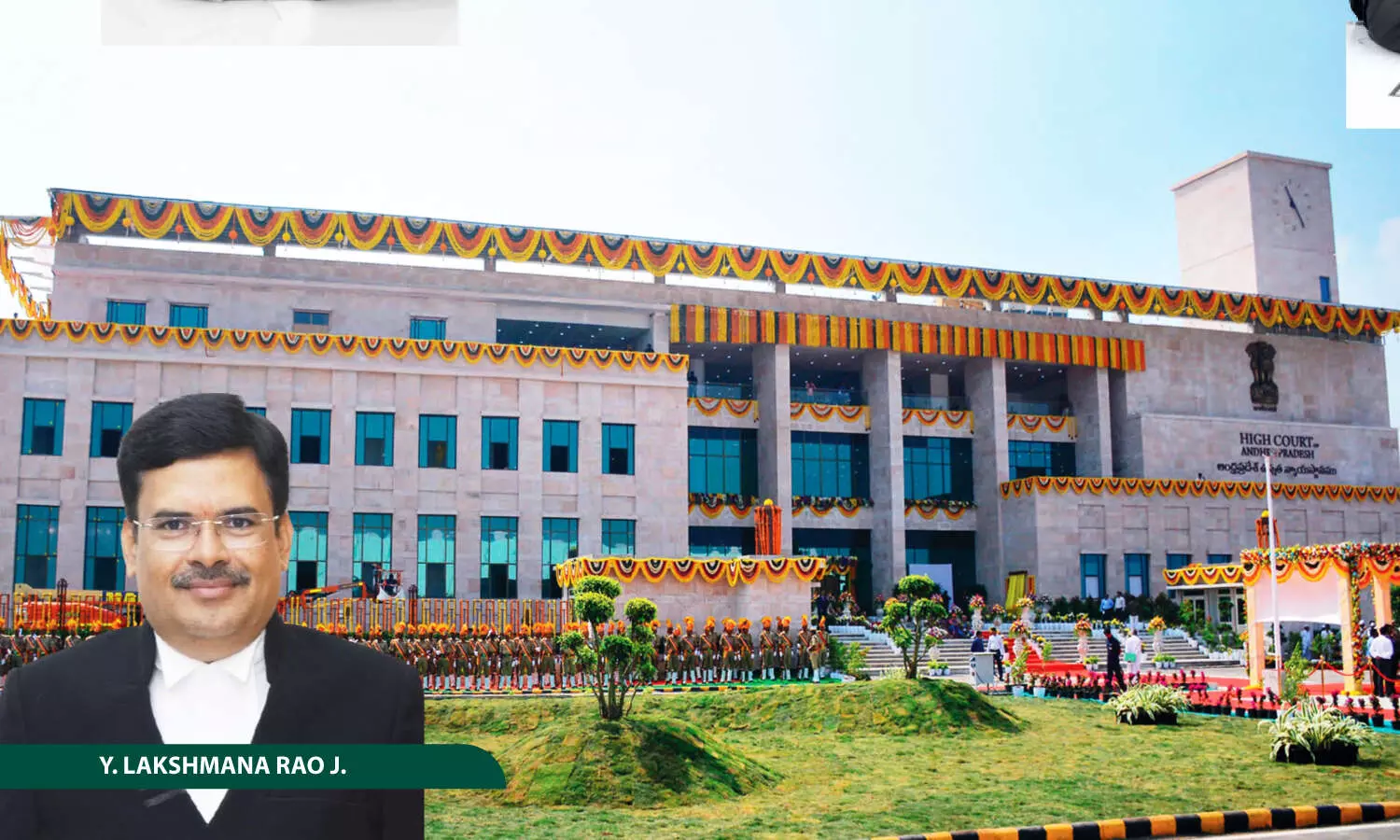
Justice Y. Lakshmana Rao, Andhra Pradesh High Court
Words Spoken Only Once In Single Instance Can’t Constitute Exploitation Of Vulnerability: Andhra Pradesh High Court Sets Aside Abetment To Suicide Charge
 |
|The Andhra Pradesh High Court was considering a Criminal Revision Case challenging the judgment confirming the conviction of the revisionists under Section 306 of the IPC.
The Andhra Pradesh High Court has set aside an order convicting a husband and a brother-in-law for allegedly abetting the suicide of a woman after finding no conspicuous presence of the element of mens rea. The High Court also made it clear that the words of the accused spoken to the deceased only once in a single instance could not constitute the accused exploiting her vulnerability, leading her to commit suicide.
The High Court was considering a Criminal Revision Case preferred under Sections 397 and 401 of Code of Criminal Procedure, 1973 (CrPC) challenging the judgment confirming the order whereby the revisionists were held guilty of the offence punishable under Section 306 of the Indian Penal Code, 1860 and sentenced to four years of rigorous imprisonment.
The Single Bench of Justice Y. Lakshmana Rao said, “There was no visible and conspicuous presence of element of mens rea in the case. The act and words of the petitioners, however, insulting or humiliating the deceased by stating that why should she live, as she was leading an immoral life, will not by itself constitute abetment of suicide. The words of the petitioners spoken to the deceased only once, a single instance i.e., on the preceding night of committing suicide, cannot constitute the petitioners exploiting the vulnerability of the deceased, making her feel worthless or undeserving of life, leading her to commit suicide.”
Advocate P.Prabhakara Rao represented the Petitioners while Assistant Public Prosecutor P.Akhila Naidu represented the Respondents.
Factual Background
The deceased woman is the wife of the first Petitioner, and the second Petitioner is the younger brother of the first Petitioner. The marriage of the first Petitioner was performed with the deceased about two decades ago. It was alleged that since the very beginning of the marriage, the first Petitioner had been harassing the deceased both physically and mentally.
On the night of February 14, 2008, the Petitioners beat the deceased due to suspicion of her fidelity. She felt insulted, as she was beaten by the brother-in-law, and poured kerosene on her body. She set herself ablaze and later succumbed to the injuries. A case was registered agaisnt the petitioners under Section 306 read with Section 34 of the IPC and the judgment of conviction was passed against them.
Reasoning
On an analysis of the dying declaration of the deceased woman, the Bench found that there was no instigation by any of the Petitioners goading the woman to commit suicide. “On a scrupulous examination of the facts and circumstances of the case, especially dying declaration of the deceased, there was no positive action proximate to the time of suicide on the part of the Petitioners which led or compelled the deceased to take the extreme step of committing suicide”, it said.
As per the Bench, the conviction under Section 306 of the IPC sustained by the Trial Court and upheld by the Appellate Court was not valid and legally acceptable inasmuch as there was no positive act on the part of the Petitioners to instigate or intentionally aid the woman to commit suicide.
It was further noticed that none of the witnesses of the prosecution had spoken that the Petitioners had entertained a clear mens rea to cause the deceased to commit suicide. There was neither an active act of direct or indirect on the part of the Petitioners which led the deceased to commit suicide, seeing no option. Beating the deceased by the Petitioners on yesternight cannot be presumable that they intended to push the deceased into such a position that she should commit suicide.
There was no evidence that the Petitioners instigated, goaded, provoked, instigated or encouraged the woman to commit suicide. The Bench noted that the deceased felt insulted or humiliated as her brother-in-law and husband beat her on the pretext that she had not kept her matrimonial piousness. “The action of the Petitioners is otherwise not ordinarily expected to induce similarly circumstanced person to commit suicide, the deceased was hypersensitive, as such, it would not be appropriate and proper to convict the Petitioners for abetment of suicide”, it said.
Thus, allowing the Criminal Revision Petition, the Bench set aside the impugned judgment.
Cause Title: Chilikuri Mariyadas v. The State of A.P. (Case No.: Criminal Revision Case No.44 of 2011)
Appearance
Petitioners: Advocate P. Prabhakara Rao
Respondents: Assistant Public Prosecutor P.Akhila Naidu